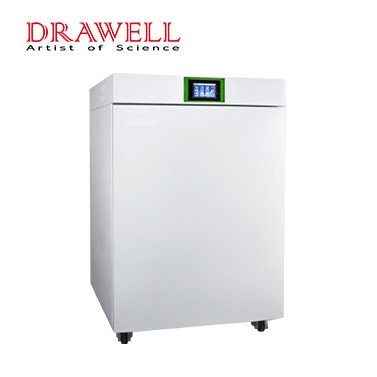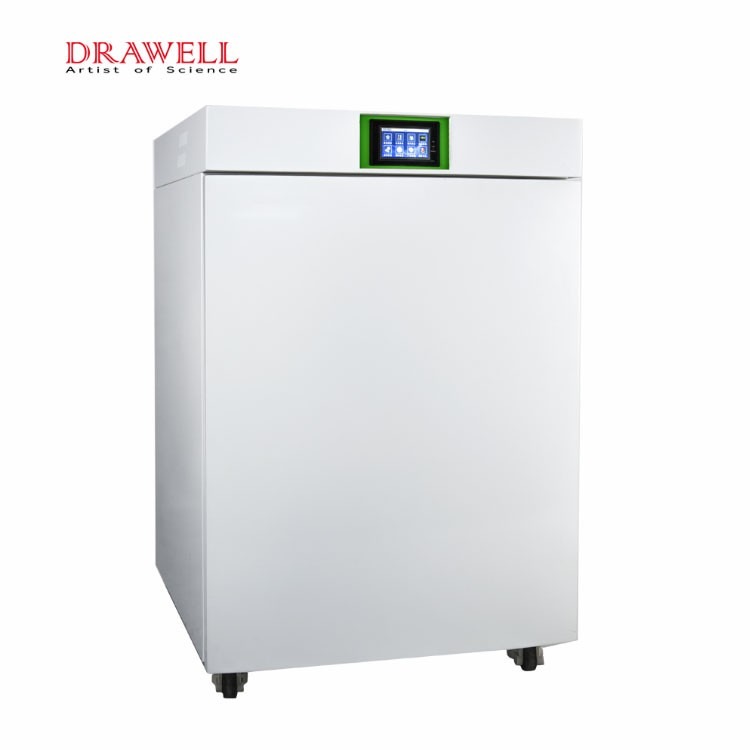CO2 incubators provide a controlled atmosphere conducive to cell growth by regulating temperature, humidity, and CO2 levels. Optimizing cell culture conditions in these incubators is critical for obtaining consistent and reproducible results. This article explores the importance of cell culture optimization in CO2 incubators and strategies to maximize experimental success.

Understanding the Importance of Cell Culture Optimization in CO2 Incubators
| Aspect | Description |
| Cell Growth | Optimal conditions in CO2 incubators are crucial for promoting cell growth, proliferation, and viability during cell culture experiments. |
| Temperature Control | Maintaining precise temperature control within CO2 incubators ensures that cells are cultured at the optimal temperature for growth and metabolism. |
| CO2 Concentration | Regulating CO2 levels in the incubator atmosphere is essential for maintaining physiological pH levels in the cell culture media and supporting cellular functions. |
| Humidity Control | Controlling humidity levels prevents desiccation of cell cultures and ensures a stable environment conducive to cell growth and health. |
| Sterility Assurance | CO2 incubators provide a controlled, sterile environment that minimizes the risk of contamination, preserving the integrity of cell cultures. |
| Gas Flow and Ventilation | Proper gas flow and ventilation within CO2 incubators ensure uniform distribution of CO2 and maintain oxygen levels essential for cell metabolism. |
| pH Monitoring | Monitoring and maintaining pH levels in the cell culture media are critical for cell health and optimal growth, as changes in pH can affect cellular processes. |
| Nutrient Supply | CO2 incubators support the delivery of nutrients to cell cultures, ensuring that cells have access to essential nutrients required for growth and proliferation. |
| Experimental Consistency | Consistent environmental conditions in CO2 incubators minimize variability between experiments, enabling reliable and reproducible results. |

Strategies for Cell Culture Optimization in CO2 Incubators
1. Temperature Control
- Maintain a consistent temperature of 37°C for mammalian cells in the incubator with precise temperature control settings.
- Regularly calibrate and validate temperature sensors and controllers to ensure accuracy.
- Arrange culture jars and plates uniformly in the incubator to reduce temperature differences among regions.
2. CO2 Regulation
- Set and maintain the desired CO2 concentration (usually around 5%) within the incubator to stabilize the pH of the culture media.
- Monitor CO2 levels using calibrated sensors and adjust gas flow rates as needed to maintain optimal conditions.
- Use high-quality CO2 sources and regularly check gas cylinders for leaks or depletion.
3. Humidity Management
- Maintain a humidity level of around 95% in the incubator to minimize evaporation and keep cells and culture material hydrated.
- Fill incubator water reservoirs or humidity pans with sterile water to maintain adequate moisture levels.
- Avoid frequent opening of the incubator door to minimize fluctuations in humidity levels.
4. Sterility Maintenance
- Adhere to strict aseptic techniques when handling cell cultures and entering the incubator.
- Regularly clean and disinfect the interior surfaces of the CO2 incubator using appropriate disinfectants to prevent microbial contamination.
- Replace air filters and HEPA filters as recommended by the manufacturer to maintain a sterile environment.
5. Optimized Culture Vessel Design
- Choose culture vessels, plates, and inserts that are compatible with CO2 incubators and provide adequate gas exchange.
- Use cell culture dishes with lids or gas-permeable membranes to minimize CO2 loss and prevent contamination.
- Ensure that culture vessels are properly sealed to prevent evaporation and maintain sterility.
6. Advanced Features Utilization
- Take advantage of advanced features available in modern CO2 incubators, such as programmable temperature and CO2 profiles, humidity control, and contamination control systems.
- Optimize incubator settings based on the specific requirements of the cell lines or experimental protocols being used.
7. Routine Monitoring and Maintenance
- Implement a regular monitoring schedule to assess temperature, CO2 levels, humidity, and sterility within the incubator.
- Keep detailed records of monitoring data and perform trend analysis to identify any deviations from optimal conditions.
- Ensure consistent performance by performing routine maintenance on incubator components, including cleaning, calibration, and inspection.
8. Training and Education
- Provide training to laboratory personnel on proper cell culture techniques, CO2 incubator operation, and maintenance procedures.
- Foster a culture of awareness and responsibility among laboratory staff to ensure adherence to best practices for cell culture optimization.

Benefits of Cell Culture Optimization in CO2 Incubators
| Benefit | Description |
| Enhanced Cell Growth | Optimization of culture conditions promotes robust cell growth, proliferation, and viability, leading to increased experimental success rates. |
| Improved Experimental Reproducibility | Consistent culture conditions result in reproducible experimental outcomes, reducing variability between experiments and improving data reliability. |
| Enhanced Cell Functionality | Optimal culture parameters support the maintenance of cellular morphology, phenotype, and functionality, ensuring accurate representation of in vivo conditions. |
| Reduced Contamination Risk | Sterile culture conditions minimize the risk of contamination, preserving the integrity of cell cultures and ensuring data accuracy and reliability. |
| Increased Cell Yield | Optimization of culture conditions leads to higher cell yields, maximizing the efficiency of cell culture experiments and reducing resource usage. |
| Accelerated Research | Enhanced cell growth and functionality enable faster experimentation cycles, accelerating research progress and facilitating discoveries. |
| Cost Savings | Improved cell culture efficiency and reduced contamination risks result in cost savings associated with reagents, labor, and experimental repeats. |
| Enhanced Data Quality | Reliable and reproducible experimental outcomes enhance data quality, supporting robust scientific conclusions and facilitating publication. |
| Maintenance of Cell Phenotype | Optimization of culture parameters helps maintain the phenotype and characteristics of cultured cells, ensuring accurate experimental results. |
| Facilitated Scale-Up | Optimized culture conditions facilitate the transition from small-scale experiments to large-scale production, enabling efficient scale-up processes. |
Conclusion
Cell culture optimization in CO2 incubators is an essential aspect of effective biological research and biotechnology applications. Researchers can construct an environment that promotes optimal cell growth and experimental performance by employing strategies for controlling temperature, CO2 levels, humidity, and sterility.




